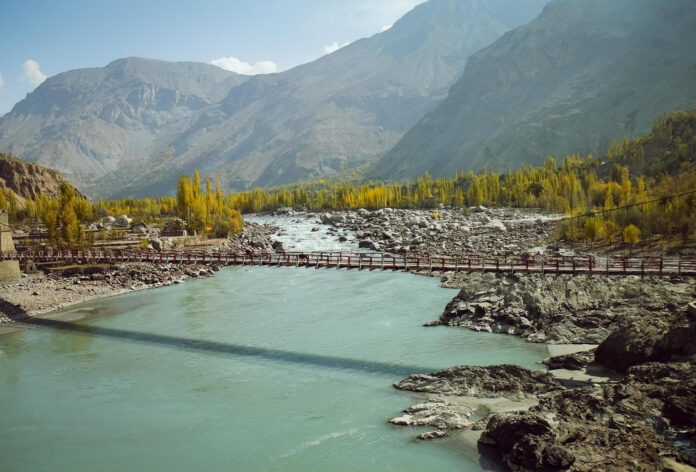Farmers from Sindh’s southern region have pledged to oppose the construction of six proposed canals on the Indus River in Punjab’s Cholistan desert, warning that the project will turn fertile lands in Sindh into barren wastelands.
According to media reports, the rally, organized under the Anti-Canals Action Committee—an alliance of Sindh Abadgar Board (SAB), Sindh Chamber of Agriculture (SCA), Sindh Abadgar Ittehad (SAI), and the Sindh United Abadgar Forum—called for the immediate shelving of the project.
Protesters argued that the canals, approved by the Central Development Working Party (CDWP), threaten the survival of millions in Sindh.
SAB President Mahmood Nawaz Shah questioned the rationale behind irrigating desert lands in Cholistan at the cost of Sindh’s fertile regions. “You will turn the desert green while converting our fertile lands into a desert. What logic justifies this?” Shah stated, adding that Sindh’s water shortages have persisted for over 150 years. He emphasized that the growers would resist any “illegal initiatives” undermining the region’s water security.
SCA’s Miran Mohammad Shah urged PPP Chairman Bilawal Bhutto-Zardari to lead the farmers’ protest, invoking the memory of Benazir Bhutto’s campaign against the Kalabagh Dam in 1998. Highlighting the broader implications, he called on urban residents, especially Karachi’s population, to recognize the potential impact on the K-IV project, which depends on water from the Kotri barrage.
Zubair Talpur, president of SAI, criticized the federal government for neglecting Sindh’s existing water shortages, which are exacerbated by inequitable distribution under the 1991 Water Accord. According to SCA Vice President Nabi Bux Sathio, data from the Indus River System Authority (IRSA) shows that Sindh endured a 40% water shortage between 1999 and 2023, compared to Punjab’s 15%.
Speakers at the rally argued that the Rs240 billion allocated for the Cholistan canal project would be better spent on completing the Diamer-Bhasha Dam, which could address broader water storage needs without harming Sindh’s agriculture.
Syed Zain Shah of the Sindhu Darya Bachayao Committee warned of large-scale migration from Sindh within the next decade if water is diverted for these canals. He urged the federal government to reconsider the project to prevent irreversible harm to the province.
Other speakers, including legal expert Yusuf Leghari, called on lawyers to join the protest by boycotting courts once a week to raise judicial awareness about the issue. Protesters declared that Sindh would never compromise on its water rights, language, and homeland, and demanded the withdrawal of the canal project.




